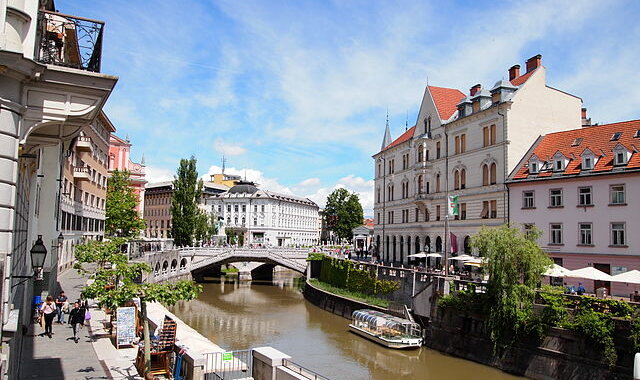
Updating Global Education in progress with kickoff meeting in Ljubljana
How do crop failures due to the La Nina weather event contribute to a mass of uprising across the Arab world? Are we eradicating global poverty and do we simply not see this reported well in the media, or is there something more complex at play? Can hostile attitudes towards migrants be better explained by cultural or economic factors? These challenging questions defy simple explanations. They require students to grapple with complex subject matter. And increasingly they are questions that high school students already find themselves confronted with when making sense of the world. Rote learning and outdated textbooks do not prepare students for asking the right questions and finding the right way to discover answers. With the project GEASA, which had its kickoff meeting in Ljubljana in May, teachers can better equip their students to understand the complex global world of today.
Partners from Slovenia, Croatia, Czechia, Italy, and The Netherlands came together to discuss the creation of an ambitious curriculum for teachers. High schools, prestigious research universities, and debate organizations join forces to help teachers update their lesson plans. Over the next two years, this partnership will explore, discover, test, and spread global education.
Through GEASA, we are aiming to support teachers and other educators in tackling difficult contemporary questions - something that’s on schedule at every debate club meeting, but often lacking in classrooms. The materials we are developing focus on five key areas:
1. Globalization, wealth, and poverty;
2. Sustainability and climate;
3. Global health;
4. Identity, culture, religion, and border crossings;
5. Noise, news, and neutrality.
The following results will be available at the conclusion of GEASA:
Training modules for teachers
A methodological framework
A toolkit for teachers and students
A digital learning environment
The project is co-funded by the European Union through the Erasmus+ programme. For more information, please visit the project page.

One-time donation
IDEA supports young people in becoming critical thinkers and active citizens.
You can help.
